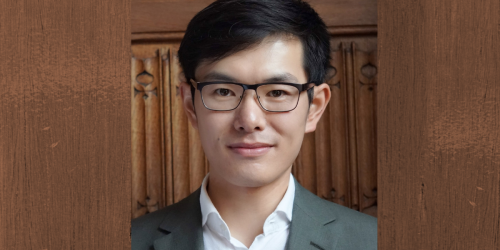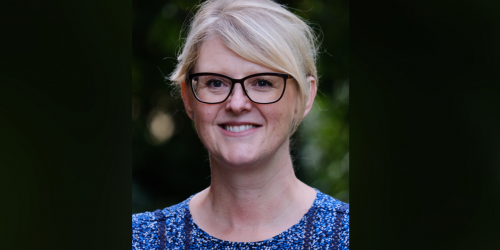Lucy’s Bye-Fellow and DoS publishes in the Life Science Alliance Journal
Dr Bridget Bannerman and collaborators publish their research on integrated metabolic models, human cell and SARS-CoV-2
Bridget talks us through her fascinating career and the tough challenges of her PhD
Where did your academic career start and how did that lead to what you're doing now?
I started my studies with a BSc in Biochemistry and quickly got very passionate about Medical Biochemistry and Pharmacology. I was also interested in computer science at the time and curious about the place of informatics in medical research; this was in the 90s. Shortly after graduation, I delved into computing and worked in the industry for a while. However, I have always known that my place was in an academic environment and research, so I got back into academia and taught chemistry and computing studies for about a year before taking up an appointment at the UK Medical Research Council in The Gambia. That marked the turning point of my career - I got involved in managing clinical trials, which I found exciting. During this period, I seized an opportunity to start a Masters’ programme in Bioinformatics at the University of Manchester. Although it was a self-sponsored programme, I was able to secure a grant from the World Health Organisation halfway through my studies and with the support of the Wellcome Trust Sanger Institute and the International Trypanotolerance Center in The Gambia. My project, then, which involved developing a resource for drug discovery studies against the Trypanosoma Brucei parasite received further funding from the Royal Society to develop it into an international resource and it’s now hosted in Paris and the USA. During the past years, I have provided support to set up the UK Small Bowel transplant service at the Cambridge University hospitals and organised clinical trials at the Department of Gastroenterology. Also, with a PhD in Biochemistry/Bioinformatics from the University of Cambridge, I have substantial experience in translational research and global health.
What have been the best and worst moments of your career so far?
The best moment of my career was a sponsorship I received from the World Health Organisation for a research project I initiated whilst in The Gambia from conception to delivery. This was a matching project to an initiative that was being developed at the Wellcome Trust Sanger Institute (WTSI) in Cambridge at the time. It was a privilege to set up the first collaborative project between the International Trypanotolerance Centre in The Gambia and the WTSI.
The worst moment of my career was on receipt of the results of the viva during my PhD programme. I was told to make major corrections on my thesis within a year or take a Masters’ degree with minor corrections. That was a very devastating period. However, with the support of my Research Advisor then, Prof Steve Oliver, the wonderful support from Lucy Cavendish College with Dr Astrid Gall, and brilliant colleagues, Dr Richard Dorrell and Dr Susanne Kramer, I rose to the challenge and took the longer and more difficult route. It was a huge relief to be successful in the end!
That’s the best thing about being part of the Lucy Cavendish College community. You’ll find a warm and friendly environment, great pastoral care, good mentorship and support, excellent academic networking initiatives and a thriving social atmosphere.
What inspired you to pursue this career? What are your key motivations and what are you ultimately trying to achieve?
I took after my dad who was very passionate with academics. I am also a promoter of good public health systems. My goals in research practice are to support the sustainable development goals SDG4 in ensuring quality education and SDG3 to ensure healthy lives and promote good public health practices.
What would be your advice to students who wanted to pursue a similar career?
A good tip, besides being diligent in studies, is to explore various research projects, find your niche for projects which you can own, steer and develop.
Dr Bridget Bannerman and collaborators publish their research on integrated metabolic models, human cell and SARS-CoV-2

An interview with Lucy Bye-Fellow (Economics) Yujiang River Chen

Kate Daniels, Lucy’s Bye-Fellow and Graduate Tutor, on her critical work on students’ mental health